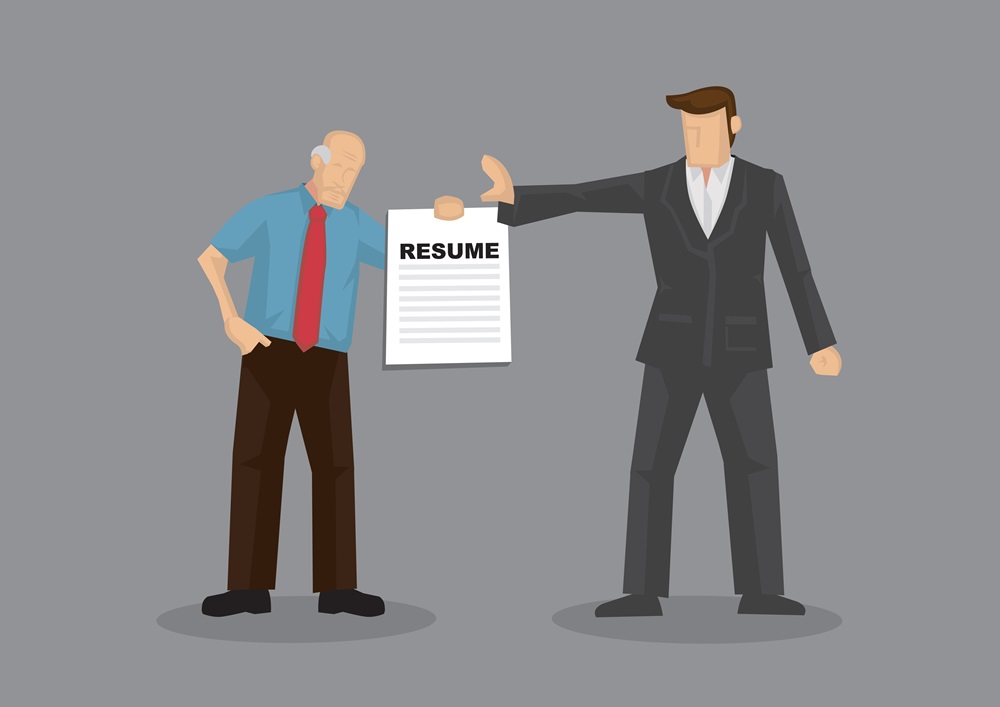Age discrimination in the workplace is an issue permeating many US employers. Studies show nearly two-thirds of adults over 50 believe older workers face workplace discrimination. Age discrimination, defined as treating someone less favorably due to their age, is often seen in areas like hiring, promotions, and workplace interactions. This bias impacts peoples’ careers and mental health as well as the productivity and legal standing of the business. This article will discuss the impact of age discrimination, how common it has become, its underlying causes, the consequences for both individuals and organizations, and methods to combat this issue.
Understanding Age Discrimination
The Age Discrimination in Employment Act (ADEA) is an important law for fighting this kind of workplace discrimination. It prohibits employment discrimination against people 40 and older, making sure older workers are treated fairly in aspects like hiring, promotions, pay, and job assignments. Age discrimination can come in many forms, including the loss of job opportunities, biased promotions, and workplace harassment, all of which go against the principles of equality and fair treatment. Understanding the Age Discrimination in Employment Act (ADEA) is essential to recognize and deal with age-related biases in the workplace.
Prevalence and Impact
Recent studies have revealed that two-thirds of adults over 50 believe older workers face age discrimination, demonstrating how widespread the issue really is. Personal anecdotes paint more of the picture, with affected individuals recounting experiences like being overlooked for promotions, receiving negative comments about their age, and feeling insignificant in their jobs. These stories highlight the dramatic impact of age discrimination, affecting the professional development and mental health of older workers as well as making the workplace environment less inclusive and equitable.
Causes and Contributing Factors
Society’s feelings about aging tend contribute to age discrimination in the workplace. Older workers are often seen as less adaptable, experienced with technology, or innovative compared to their younger counterparts. These biases are made worse in bad economic times, when higher amounts of job competition lead employers to favor younger candidates who are seen as more cost-effective and dynamic. These societal and economic factors combine to create an environment where older workers are disadvantaged and undervalued.
Consequences of Age Discrimination
Age discrimination comes with intense consequences for individuals, often resulting in significant mental health issues like stress, anxiety, and decreased self-esteem. Victims of age discrimination also experience career stagnation since they tend to be passed over for promotions or new opportunities.
For businesses, workplace discrimination like this can result in losses of productivity, as excluding experienced workers causes a loss of valuable skills and knowledge. Additionally, businesses can face potential legal issues, such as lawsuits and financial penalties, which can damage their reputation and financial standing.
Combating Age Discrimination
Combating age discrimination requires relevant efforts from both individuals and organizations. Individuals experiencing age discrimination can take steps such as documenting incidents, leaning on colleagues or family for support, and filing formal complaints with the Equal Employment Opportunity Commission (EEOC) to pursue legal recourse.
For employers, it’s important to use best practices for creating and maintaining inclusivity in the workplace. This includes training programs to teach staff about age bias, establishing unbiased hiring practices, and making sure respect and diversity are significant parts of the workplace culture. These strategies help to reduce age discrimination and boost overall workplace morale and productivity.
Addressing Age Discrimination for a Fairer Workplace
It’s apparent that age discrimination in the workplace constitutes an issue impacting older workers through biased hiring practices, unfair promotions, and other forms of workplace harassment. The Age Discrimination in Employment Act (ADEA) protects workers over 40, but society’s attitudes toward older people and economic pressure continues to make the problem worse. Age discrimination also comes with significant consequences that impact both individuals and businesses causing mental health challenges, stagnation of careers, reductions in productivity, and potential legal issues.
When combatting age discrimination, individuals should be aware of their rights and consider filing EEOC complaints if necessary. Meanwhile, employers should create training programs and unbiased hiring practices to maintain inclusivity in their work environment. All stakeholders should come together and take proactive steps to prevent age discrimination, as well as address it properly when it does happen. This way, American workplaces stay fair and equitable for everyone.




